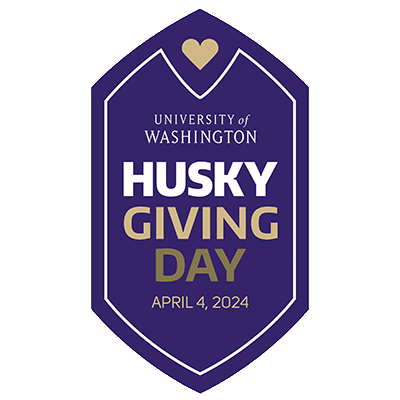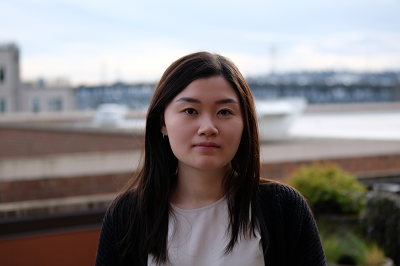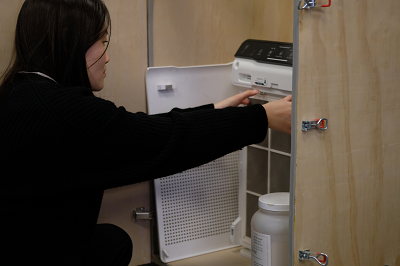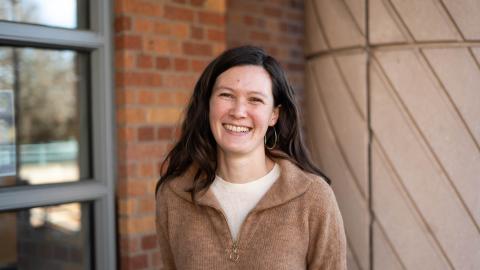
On April 4, 2024, join the UW community for Husky Giving Day to raise funds that support UW students and programs. Your donation supports students like Shirley through the DEOHS Environmental Health Student Support Fund, which helps graduate students pay for research-related expenses, including travel and conference presentations to share their research.
Last fall, Shirley Huang received funding from the Environmental Health Student Support Fund to present her research on improving air quality in Seattle homeless shelters at the International Society for Environmental Epidemiology conference in Kaohsiung, Taiwan.
“I really appreciate the support from our department to allow me to go back to my hometown to present my research,” she said. “I was able to network and receive feedback from experts in our field. It helped refine my research approach and strengthened its impact because I could share my results with people around the world.” We caught up with the PhD student recently to learn more about her research.
How did you first get interested in studying environmental health?
My interest in environmental health was sparked from my undergraduate studies in public health at Taipei Medical University in Taiwan. I researched household air pollution exposure and its relationship with asthma symptoms in children.
I had asthma when I was a kid, so I’ve witnessed how different environmental factors impact human life, and also public health. Through my undergraduate work, I became passionate about using research and intervention to address these issues. This led me to pursue further studies in environmental and occupational health science.
How did you decide to come to DEOHS for graduate school?
I chose to do my master’s and PhD at the UW Department of Environmental & Occupational Health Sciences (DEOHS) due to our department’s commitment to interdisciplinary collaboration.
I’ve collaborated with different faculty members and fellow students, and also engaged in several cutting-edge research projects. Our department also focuses heavily on environmental justice and equity issues. All of these elements align perfectly with my personal and academic goals.

Tell me about your research.
My research interests span a wide spectrum, but they’re all related to addressing environmental health disparities. For my master’s, I looked at the effectiveness of HEPA air cleaners at reducing household air pollution.
For my PhD, I have collaborated with King County to look at the effectiveness of air cleaners in congregate living settings for people experiencing homelessness in Seattle. King County has integrated our study results into their ventilation guidelines for homeless shelters.
Outside my dissertation, I have mapped the impact of transportation noise. Our findings revealed that transportation noise disproportionately impacts racial minorities across the United States.
What inspires you or excites you most about your work?
I think my research has potential to drive positive impact and inform evidence-based intervention to create more sustainable and equitable environments. Also, by collaborating with governmental agencies and different community organizations, I can see the direct impact of my work on improving public health outcomes.

What has it been like to work with your adviser?
Working with my adviser, Edmund Seto, has been incredibly fun and rewarding. He always welcomes me to think about different, unconventional ideas.
He also encourages me to engage in different research projects outside my own dissertation work. Through these projects I’ve learned data analysis skills that are very helpful when I conduct my own research.
What do you like to do in your free time?
I enjoy exploring different restaurants in the area, especially Thai cuisine. And I enjoy the beautiful water and outdoors in the Pacific Northwest.
What would you like to do after graduation?
I'm graduating this year, and I plan to continue to work as a research scientist in the field. My goal is to leverage the data science skills that I have gained through the past few years. My career could be in academia, government or private industry, but my overall goal is to continue contributing to the field of environmental health sciences.



